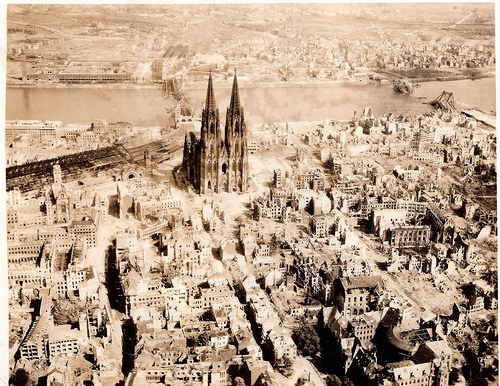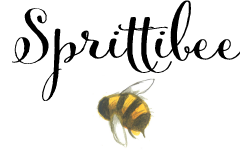
Most people with kids think of themselves as pretty good parents. After all, you love your kids more than anyone in the whole world does – besides God himself. Surely if you love your kid, you can’t be all wrong, right?
We hope that because they love us back, they can forgive any errors we might make in raising them. We trust that it will all work out in the end.
Many of us think this is enough and never even pick up a parenting book or take a class to help ourselves become better parents – even though parenting is probably the most important job God will ever give us.
I like to pat myself on the back sometimes because I’m a homeschool mom. I really believe that it is my duty as a parent to instill Godly character in my kids… even if I’m not always the best example of it. Even with decision to homeschool because I believe my kids are the most important job I have, I often hear myself saying the same old tired phrases that my parents used when raising me; even ones I never thought I would say, like “Because I said so.”
Let’s face it: parenting is a tiring process. It wears on the nerves and resolve; no matter HOW much you love those little monsters.
Today, I picked up a parenting book that I had recently listed on Paperback Swap and started to read it. I’ll be honest – it was given to me by a friend (who I’m not sure even read it), and it has been sitting, collecting dust on my shelf for over two years. I only listed it on Paperback Swap to meet my required 10 books before I can “check a book out” via the mail.
I opened it up to browse it before I had to stick it in the mail today for whomever borrowed it, never thinking that a few pages might move my heart so much. I’ve read quite a few parenting books. I’ve learned so much from other homeschool moms and leaders. I’ve been convicted many times before. Yet this fresh word was just what I needed today.
It was important enough that I decided to give up the better part of today to read the rest of the book before I took it to the post office. It was also important enough that I wanted to share it with you:
“What is our major goal as parents?”
Some ventured, “To improve parent-child relationships.”
Another said, “To find better ways of communicating with our children.”
Still another woman glibly said, “To produce children who are, among other things, brilliant, polite, charming, neat and well-adjusted, of course.”
Dr. Ginott looked solemn. It was obvious that this last comment had not amused him. He leaned forward and said, “This is how I see it. It seems to me that our large goal is to find the ways to help our children become humane and strong.
For what does it profit us if we have neat, polite, charming young people who can watch people suffer and not be motivated to take action? What have we accomplished if we have reared a child who is brilliant – at the top of his class – but who uses his intellect to manipulate others?
And do we really want children so well-adjusted that they adjust to an unjust situation? The Germans adjusted only too well to the orders of the Nazis to exterminate millions of their fellow men.
Understand me: I’m not opposed to a child being polite or neat or learned. The crucial question for me is: What methods have been used to accomplish these ends? If the methods used are insults, attacks, and threats, then we can be very sure that we have also taught this child to insult, to attack, to threaten, and to comply when threatened.
If, on the other hand, we use methods that are humane, then we’ve taught something much more important than a series of isolated virtues. We’ve shown the child how to be a person – a mensch – a human being who can conduct his life with strength and dignity.”
From across the room Helen’s eyes caught mine. There it was. That elusive idea that had so motivated us at that first meeting had finally been identified. It was the concept of a process for humanizing – a concept that told us that every act of relating to a child had meaning, counted for something, became part of the fabric of that person he was to become. I could begin to see that when we said to a child, “The milk spilled” and handed him a sponge, we were doing more than using a clever technique for handling a minor mishap. On a much deeper level we were saying, “I see you as a person who is capable of helping himself.”
We were telling him:
“In time of trouble we don’t blame.”
“In time of trouble we focus on solutions.”
“In time of trouble we lend each other a helping hand.”All at once it became sharply clear to me that if the very process one uses with a child determines the kind of human being he becomes, then I could never again feel the same about my job as a parent. True, the daily irritations would still be there, but I saw them now as opportunities – opportunities to forge our children’s character, opportunities to affirm the values I believe in.
The woman who had given the glib answer earlier spoke again. “I didn’t realize I was doing such important work.”
Dr. Ginott smiled, “It all depends upon how you look at it. Let me tell you a story:
Three laborers were approached by a villager. ‘What are you doing?’ he asked them.
The first worker said, ‘I’m earning my living.’
The second one said, ‘I’m laying bricks.’
The third one answered, ‘I’m building a cathedral.'”
Silence. The woman nodded soberly.I thought, we too are laborers. Our work is raising children. Our bricks – our moment-by-moment responses. Our cathedral – the realization of our children’s full humanity.
Pretty awesome stuff. It came from a book entitled, “Liberated Parents, Liberated Children: Your Guide to a Happier Family
” by Adele Faber & Elaine Mazlish
Today I’m imagining my children as the light of the world (Matthew 5:14). I’m imagining them as the cathedral pointing the way for all those weary souls that pass by in their future. My words and actions are the slow brick-laying craft forming the towering, vaulted beauty they will become.
May we have a glimpse in to the future as we lay bricks this day. May we be cathedral builders.
In Him,
Heather
Subscribe to Sprittibee by Email
Disclaimer: This post contains affiliate links.
Credits: Photo by David C. Foster of The Dom Cathedral in Germany, Central Station, and the destroyed Hohenzollernbrücke Bridge over the Rhine River (1945)
